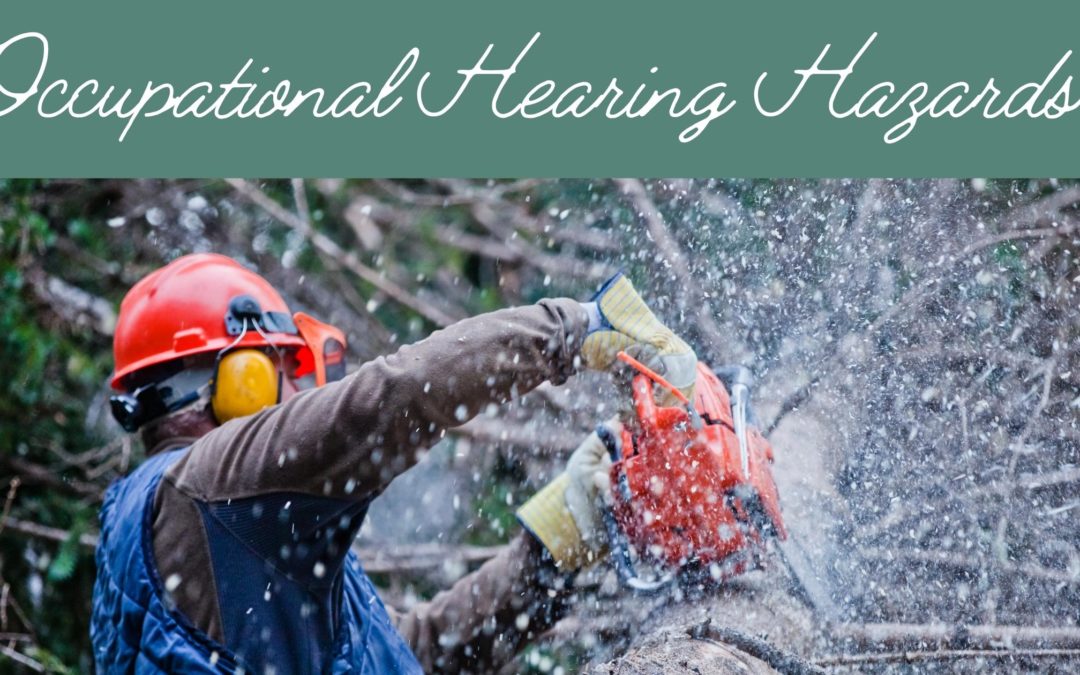Approximately 22 million American workers risk hearing loss on the job each and every year. Loud noise in the workplace can cause noise-induced hearing loss and tinnitus. There are numerous noisy professions that can damage your ears if you’re not wearing the right hearing protection. Take some time to learn more about your occupational hearing hazards.
Noisy Workplaces
Noise is more than an annoyance, it’s a health and safety hazard. Noise can lead to hearing loss. It can also cause tinnitus, or lead to other physical and mental health concerns. Some of the noisiest jobs in the country include:
- Air traffic controllers on the tarmac
- Musicians
- Bartenders
- Construction workers
- Factory workers
- Farmers
- Law enforcement officers
- First responders
- Athletes and anyone working in sports venues
These are just some of the noisiest jobs in America. Can you think of other jobs that could hurt your hearing?
How to Recognize a Noisy Workplace
Is your job site extremely loud? Here are a few ways to recognize occupational hearing hazards.
- Sounds seem excessively loud.
- Your ears hurt when you leave work.
- Sounds seem muffled when you head home from work.
- You have temporary tinnitus at the end of every shift.
- You have to shout to talk to your coworkers over the noise of machinery.
These are all signs that your workplace is dangerously loud. You can confirm this with a decibel reader on your phone. These free sound level readers will tell you how loud it really is at work. Any noise over 85 decibels (dB) can harm your hearing. If your workplace is over 85 dB, you should always protect your hearing on the job.
OSHA Standards
The Occupational Safety and Health Administration works to protect the health of all American workers. They have clear regulations about noise in the workplace. In any unsafe workplace, or a jobsite that has sounds louder than 85 dB for 8 hours or more, the employer has a responsibility to keep employees safe. This includes providing education about noise, and providing appropriate hearing protection. They should also try to reduce noise exposure through investing in quieter equipment, building sound barriers to reduce noise levels, or making it easier for workers to do their jobs further away from the source of any noise.
Protect Your Hearing with Earplugs and Earmuffs
Hearing loss is permanent. If you work in a noisy workplace and develop hearing loss, there’s no way to reverse this hearing loss. The good news is that noise-induced hearing loss is preventable! Take the steps to find out more about the noises that damage your hearing, and make sure you’re protecting your hearing whenever sounds are too loud.
You should always protect your hearing on noisy job sites. If you have to yell to talk to your coworkers, make sure you wear hearing protection! There are two main kinds of hearing protection:
- Earplugs: These can be made of foam, wax, or even soft silicone. Earplugs can reduce moderately loud sounds to a safe level. They’re very lightweight and inexpensive. You can easily keep some in your pocket, and wear them on the job site and during loud leisure activities.
- Earmuffs: These provide heavy-duty protection when sounds are extremely loud. If you’re working with heavy machinery or power tools, you should be wearing earmuffs. They create a seal around your entire ear, reducing more of the sounds and protecting your ears from dangerous noise.
Noise-induced hearing loss is permanent. Once you have hearing loss, there’s no way to regrow the cells in your ear that have been damaged. The best thing you can do for your hearing is to wear earplugs and protect your hearing!
Treating Hearing Loss
Do you have hearing loss? The earliest sounds of hearing loss include:
- Having a hard time following conversations.
- Struggling to hear in background noise.
- Having difficulty localizing sounds.
- Asking people to repeat themselves.
- Missing soft sounds, like whispered conversations, or the birds chirping outside.
If you have hearing loss, visit us for a hearing test. A hearing test will reveal what kind of hearing loss you have, and what your best treatment options are. We’ll help you find the perfect hearing aids, and help you protect your hearing from further damage.


